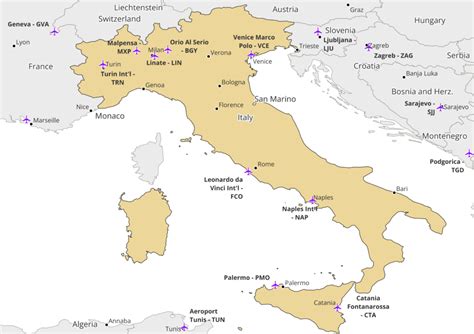
Travelers heading to Europe this summer are urged to exercise increased caution due to a heightened risk of terrorism, according to recent warnings from various government agencies. The advisories highlight potential threats across the continent, prompting calls for vigilance at tourist hotspots, transportation hubs, and public gatherings.
Several countries have issued updated travel guidance, citing credible intelligence suggesting an elevated possibility of terrorist attacks. While not specifying particular targets or methods, the warnings underscore the need for travelers to remain aware of their surroundings and report any suspicious activity to local authorities. The increased concerns coincide with major upcoming events like the Paris Olympics, heightening security measures across the continent.
Heightened Alert and Travel Advisories
The U.S. State Department has consistently cautioned American citizens traveling abroad to be aware of potential risks. While region-specific alerts may vary, the general advice emphasizes vigilance in public places and adherence to local security guidelines.
Other countries, including the United Kingdom, Canada, and Australia, have issued similar advisories for their citizens traveling to Europe. These warnings often include practical tips for staying safe, such as avoiding large crowds, being mindful of personal belongings, and having emergency contact information readily available.
“Terrorism is always a concern, and we encourage travelers to be aware of their surroundings,” said a spokesperson from the U.S. State Department. “We work closely with our partners in Europe to share information and coordinate security efforts.”
The heightened alert is not limited to any specific country, encompassing potential risks across popular tourist destinations like France, Germany, Spain, Italy, and the United Kingdom. Major cities such as Paris, London, Berlin, and Rome are considered particularly vulnerable due to their iconic landmarks and large concentrations of people.
Factors Contributing to the Increased Risk
Several factors are believed to contribute to the heightened terrorism risk in Europe. These include:
- Geopolitical Instability: Ongoing conflicts and political tensions in various regions around the world can inspire or motivate terrorist groups to target Western countries.
- The Rise of Extremist Ideologies: The spread of extremist ideologies online and through various networks continues to pose a threat, radicalizing individuals and encouraging them to carry out attacks.
- Returning Foreign Fighters: The return of foreign fighters from conflict zones in the Middle East and other regions raises concerns about potential attacks by individuals with combat experience and extremist connections.
- “Lone Wolf” Attacks: The threat of “lone wolf” attacks, carried out by individuals inspired by extremist ideologies but not directly connected to organized groups, remains a significant concern. These attacks are often difficult to predict and prevent.
- Exploitation of Open Borders: The Schengen Area, which allows for passport-free travel between many European countries, can make it easier for terrorists to move across borders and plan attacks.
Impact on Travel and Tourism
The heightened terrorism risk could have a significant impact on travel and tourism in Europe. Some travelers may choose to postpone or cancel their trips, while others may opt for destinations perceived as safer.
Tourism industry experts are closely monitoring the situation and working to reassure travelers that Europe remains a safe and welcoming destination. However, they acknowledge that the heightened alert could lead to a decline in tourist arrivals, particularly during the peak summer season.
“We are working closely with security agencies to ensure the safety of our visitors,” said a spokesperson from a major European tourism association. “We want travelers to know that we are taking all necessary precautions to protect them.”
Security Measures and Counterterrorism Efforts
European authorities have stepped up security measures in response to the heightened terrorism risk. These measures include:
- Increased Police Presence: Visible police patrols have been increased in public places, particularly in tourist hotspots and transportation hubs.
- Enhanced Surveillance: Security cameras and other surveillance technologies are being used to monitor public areas and identify potential threats.
- Stricter Border Controls: Border controls have been tightened in some countries to prevent the entry of suspected terrorists.
- Intelligence Sharing: Intelligence agencies are sharing information and coordinating their efforts to track and disrupt terrorist networks.
- Public Awareness Campaigns: Public awareness campaigns are being launched to educate citizens about the threat of terrorism and encourage them to report suspicious activity.
European governments are also working to address the underlying factors that contribute to terrorism, such as poverty, social exclusion, and extremist ideologies. These efforts include:
- Counter-Radicalization Programs: Programs are being implemented to counter radicalization and prevent individuals from being drawn into extremist groups.
- Community Engagement: Efforts are being made to engage with communities and build trust between law enforcement and the public.
- Education and Employment Initiatives: Initiatives are being launched to improve education and employment opportunities for disadvantaged youth.
Travel Advice and Safety Tips
Travelers heading to Europe are advised to take the following precautions:
- Stay Informed: Monitor news and travel advisories for the latest information about potential risks.
- Be Aware of Your Surroundings: Pay attention to your surroundings and report any suspicious activity to local authorities.
- Avoid Large Crowds: Avoid large crowds and public gatherings whenever possible.
- Be Mindful of Personal Belongings: Keep your personal belongings secure and be aware of pickpockets.
- Have Emergency Contact Information Readily Available: Keep emergency contact information, including the phone numbers of your embassy or consulate, readily available.
- Register with Your Embassy or Consulate: Register your travel plans with your embassy or consulate so that they can contact you in case of an emergency.
- Follow Local Security Guidelines: Follow the instructions of local authorities and security personnel.
- Trust Your Instincts: If you feel uncomfortable or unsafe in a particular situation, leave immediately.
- Purchase Travel Insurance: Ensure you have comprehensive travel insurance that covers medical emergencies, trip cancellations, and other unforeseen events.
- Make Copies of Important Documents: Keep copies of your passport, visa, and other important documents in a safe place.
The Paris Olympics and Security Concerns
The upcoming Paris Olympics in July and August 2024 have heightened security concerns across Europe. French authorities are implementing extensive security measures to protect the Games from potential terrorist attacks.
These measures include:
- Increased Security Personnel: Thousands of additional police officers and security personnel will be deployed to Paris and other Olympic venues.
- Enhanced Surveillance: Security cameras and other surveillance technologies will be used to monitor Olympic venues and surrounding areas.
- Stricter Access Controls: Access to Olympic venues will be tightly controlled, with thorough security checks for all attendees.
- Coordination with International Partners: French authorities are working closely with international partners to share intelligence and coordinate security efforts.
Despite the heightened security concerns, French officials are confident that they can ensure the safety of the Olympics.
“We are taking all necessary precautions to protect the Games from potential terrorist attacks,” said a spokesperson from the French Interior Ministry. “We are working closely with our partners to ensure the safety of athletes, spectators, and everyone involved in the Olympics.”
Long-Term Implications
The heightened terrorism risk in Europe is likely to have long-term implications for travel and tourism, as well as for security policies and counterterrorism efforts.
Travelers may become more cautious about visiting Europe, opting for destinations perceived as safer. This could lead to a shift in tourism patterns, with some countries benefiting from increased tourist arrivals while others experience a decline.
European governments are likely to continue to invest heavily in security measures and counterterrorism efforts. This could lead to increased surveillance, stricter border controls, and other measures that may impact civil liberties.
The fight against terrorism is a complex and ongoing challenge. European authorities must work to address the underlying factors that contribute to terrorism, while also taking necessary precautions to protect their citizens and visitors.
Expert Opinions and Analysis
Security experts and analysts have offered various perspectives on the heightened terrorism risk in Europe.
Some experts believe that the threat is real and significant, citing the ongoing conflicts and political tensions in various regions around the world, the rise of extremist ideologies, and the return of foreign fighters from conflict zones.
“The threat of terrorism in Europe is very real,” said a terrorism expert from a leading think tank. “We have seen a number of attacks in recent years, and there is no reason to believe that the threat has diminished.”
Other experts argue that the threat is being overblown, and that the risk of being killed in a terrorist attack is still relatively low.
“The risk of being killed in a terrorist attack is still very low,” said a security analyst from a major consulting firm. “However, it is important to be aware of the potential risks and take necessary precautions.”
Regardless of their perspective, most experts agree that the heightened terrorism risk is likely to persist for the foreseeable future.
Conclusion
The heightened terrorism risk in Europe is a serious concern that should not be ignored. Travelers heading to Europe are advised to stay informed, be aware of their surroundings, and take necessary precautions to protect themselves. European authorities are taking steps to enhance security measures and counterterrorism efforts, but the fight against terrorism is a complex and ongoing challenge. While the threat may impact travel plans and necessitate increased vigilance, understanding the situation and taking appropriate precautions can help ensure a safer and more enjoyable travel experience. The continent remains a vibrant and culturally rich destination, and informed travelers can continue to explore its many offerings with awareness and preparedness.
Frequently Asked Questions (FAQ)
1. What specific areas in Europe are considered to be at the highest risk of terrorism?
While no specific locations are named as definitively “safe” or “unsafe,” major cities with high tourist concentrations such as Paris, London, Berlin, Rome, and Barcelona are generally considered to be at higher risk due to their iconic landmarks and large gatherings of people. Transportation hubs like airports and train stations across the continent are also potential targets. The risk assessments are based on multiple factors, including historical incidents, intelligence gathering, and the potential for symbolic impact. Authorities advise increased vigilance in any crowded public space.
2. What are the key indicators of suspicious activity that travelers should be aware of?
Travelers should be vigilant and report any unusual or suspicious behavior to local authorities. Key indicators might include: unattended bags or packages in public areas, individuals acting nervously or suspiciously observing security measures, people taking photographs or videos of sensitive locations, and anyone making threats or expressing extremist views. It’s crucial to trust your instincts; if something feels off, report it. Don’t attempt to confront or engage with potentially suspicious individuals directly.
3. How are European countries collaborating to address the increased terrorism risk?
European countries are actively collaborating through various mechanisms, including intelligence sharing, joint law enforcement operations, and coordinated security policies. Agencies like Europol facilitate cross-border cooperation, helping to track and disrupt terrorist networks. The European Union also plays a role in setting common security standards and providing funding for counterterrorism initiatives. Regular meetings and information exchanges between national security agencies are crucial for maintaining a coordinated response to the evolving threat landscape.
4. What role do online platforms and social media play in the spread of extremist ideologies and how are authorities combating this?
Online platforms and social media have become significant channels for the spread of extremist ideologies, recruitment, and incitement to violence. Terrorist groups and individuals use these platforms to disseminate propaganda, radicalize individuals, and coordinate activities. Authorities are combating this through a multi-pronged approach, including: working with tech companies to remove extremist content, monitoring online activity for signs of radicalization, and developing counter-narratives to challenge extremist ideologies. Additionally, law enforcement agencies are pursuing legal action against individuals who use online platforms to promote terrorism.
5. What additional resources or websites can travelers consult for up-to-date information and safety advice?
Travelers can consult several reliable resources for up-to-date information and safety advice:
- U.S. Department of State: The State Department’s website (travel.state.gov) provides travel advisories, safety information, and emergency contact details for U.S. citizens traveling abroad.
- Embassies and Consulates: The websites of embassies and consulates in your destination country offer local safety information and assistance.
- Travel Insurance Providers: Many travel insurance providers offer resources and advice on staying safe while traveling.
- Local Law Enforcement Agencies: Contact local police or tourist information centers for information on specific safety concerns in your destination.
- Official Government Travel Advice Websites: Check the official travel advice websites of your home country (e.g., the UK’s Foreign, Commonwealth & Development Office, Canada’s Travel Advice and Advisories, Australia’s Smartraveller) for specific guidance.
By staying informed and taking appropriate precautions, travelers can minimize their risk and enjoy a safe and rewarding trip to Europe. The threat of terrorism should not deter travel altogether, but it necessitates increased awareness and preparedness.









